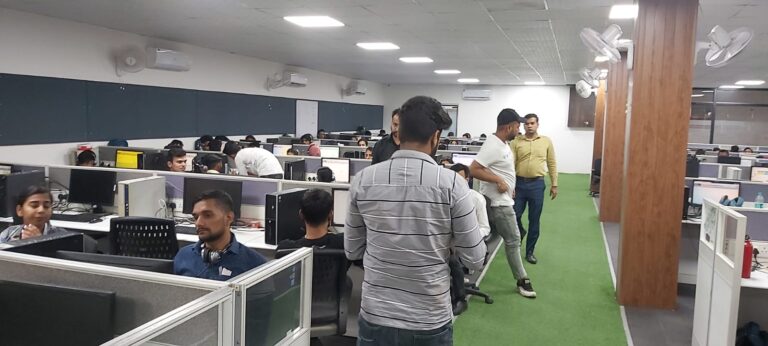10 Major Problems Faced by Women Entrepreneurs in India
Entrepreneurship is undoubtedly challenging, especially for women in India. Aspiring women entrepreneurs encounter several hurdles on their journey to establish successful businesses. This article addresses the specific challenges faced by women entrepreneurs in India, shedding light on the unique obstacles that hinder their progress in the business world.
Here we will discuss the main challenges faced by women entrepreneurs in India and how this issue has affected the advancement of women’s entrepreneurship. Let’s get started.

Problems Faced by Women Entrepreneurs in India
1. Limited Women Friendly Sectors
Despite global efforts to promote gender equality, India’s entrepreneurial landscape presents a challenging reality for women. Despite innovative business ideas originating in the country, women-led businesses often find themselves restricted to low-revenue sectors. In contrast, men dominate high-profit sectors like manufacturing and construction, making it harder for women to find similar opportunities.
The existence of male-centric cultures within industries and financial institutions limits women’s progress. Consequently, women entrepreneurs are pushed toward sectors traditionally deemed “women-friendly” such as fashion, education, apparel, and beauty care. This limitation significantly impedes women’s professional growth, experience, opportunities, and capabilities in India’s business arena.
2. Limited Support
Starting a business is tough, especially for women. Often, they lack encouragement from their families, peers, and communities. This lack of social support makes their journey harder. Additionally, the absence of mentorship in the business world means they have to learn from mistakes instead of getting proper guidance.
Not only do women struggle with social support, but they also face challenges in institutional support. Authorities and institutions often do not provide the necessary guidance, causing women to miss important opportunities within the business sector.
3. Challenges in Funding Access
Securing funds is a significant challenge for women entrepreneurs in India. Gender biases in the business sector make it difficult for women-led businesses to access capital. Societal views and unfair prejudices among investors often hinder women entrepreneurs from gaining financial support. Additionally, many women lack assets or properties that can serve as collateral for loans, further limiting their funding prospects.
4. Lack of Professional Networks
Networking plays a crucial role in the success of entrepreneurs, yet many women in India face challenges in building professional connections. This lack of a robust network base hampers their entrepreneurial journey and contributes to the scarcity of successful women entrepreneurs in the country.
Successful entrepreneurs often credit their achievements to the people they meet and connect with. Building professional relationships opens doors to opportunities, knowledge, and support. Unfortunately, many Indian women entrepreneurs find it challenging to establish these vital connections.
Addressing these challenges is crucial to empowering women entrepreneurs. In the subsequent sections, we will explore strategies to enhance networking opportunities and facilitate meaningful connections among women entrepreneurs in India.
Related: Challenges Faced by Entrepreneurs in India
5. Challenges in Entrepreneurial Environment
Entrepreneurship thrives in an environment where individuals can actively engage in various aspects of business, from providing capital to overseeing labor. In India, however, many women face limitations that hinder their entrepreneurial spirit, preventing them from fully participating in the business arena.
For Indian women, home responsibilities often confine them to working from home. This limited exposure restricts their experiences to personal encounters, hindering their ability to learn from other women entrepreneurs. They miss out on understanding the challenges of the business environment and building essential relationships with other businesses, thereby limiting their market access.
Addressing these limitations is essential to fostering an entrepreneurial environment for Indian women. Providing opportunities for them to engage actively, gain insights from fellow entrepreneurs, and build professional relationships is crucial. Empowering Indian women to step out, connect, and learn from the broader business landscape can unlock their entrepreneurial potential, driving innovation and growth in the country.
6. Balancing Traditions and Business: Challenges Faced by Indian Women Entrepreneurs
In India, cultural expectations often pose significant challenges for women entrepreneurs. A study from the National Family Health Survey (NFHS) revealed that only 32% of married women between 15 to 49 years are employed. Traditional gender roles, including responsibilities like cooking and caregiving, are deeply ingrained in Indian society. Navigating these roles while pursuing entrepreneurial ambitions can be exceptionally challenging.
For married women entrepreneurs, managing both family responsibilities and a business is a delicate balance. Society often perceives them primarily as married individuals rather than recognizing their business achievements. This societal perspective adds pressure on women to fulfill traditional roles while trying to establish successful businesses.
The journey of married women entrepreneurs involves breaking free from these social expectations. It requires not only managing their businesses efficiently but also challenging societal norms. Encouragement and understanding from the community are vital to empowering these women to pursue their entrepreneurial dreams without the burden of conforming to traditional gender roles.
Addressing these challenges and creating a supportive environment is essential to unlocking the full potential of Indian women entrepreneurs, allowing them to thrive in both their personal and professional lives.
7. Challenges in Mobility
For women entrepreneurs in India, limited mobility presents a significant hurdle in their everyday lives. Safety concerns and societal norms restrict their ability to move freely, impacting their business endeavors.
In many parts of India, women face heightened vulnerability to harassment and assault, particularly in urban centers and slums. There’s an unspoken curfew; being alone after midnight is often viewed with suspicion. Airlines and hotels also impose restrictions, insisting women must have male company for safety reasons. Public transport, though available, is often challenging, making it difficult for Indian women to travel independently.
While some women have personal vehicles, many others lack this convenience, severely limiting their mobility. This limitation affects not only their personal lives but also their ability to expand their businesses and seek new opportunities.
Addressing these mobility challenges is essential in empowering women entrepreneurs in India. Creating safe spaces, improving public transport, and challenging societal norms are crucial steps toward enabling women to move freely, fostering their independence and success in the business world.
> 10 Essential Tips for Women Entrepreneurs
8. Lack of Education
In India, becoming a successful entrepreneur means having experience and knowledge. Sadly, many women don’t get the education they need. Without the right skills, starting a business is tough.
But things are changing. More women now have the chance to go to college. This education helps level the playing field. Learning about business and gaining professional experience can make a huge difference. With the right education, women entrepreneurs can chase their dreams and build successful businesses.
9. Lack of Decision Making
Indian women face limited decision-making power due to traditional family roles. Significant choices are often controlled by husbands, leaving women with little experience in independent decision-making. Societal expectations and the need for family approval create hurdles for women entrepreneurs. Any spontaneity in business decisions can lead to judgment and missed opportunities. Overcoming these challenges is essential for empowering women entrepreneurs in India.
> 6 Major Challenges Faced by Multinational Companies (MNCs) in India
10. Competition
In India, business competition is intense, especially for women. Men’s resistance to female leaders means women must work harder. Internal and external pressures demand constant excellence. Female entrepreneurs face competition not only from men but also from fellow women entrepreneurs. Mental toughness and unwavering focus are essential for success in this challenging environment. Excellence is key; mediocrity has no place in the competitive business world for both genders.
Conclusion
Addressing problems faced by women entrepreneurs in India demands a comprehensive approach. Policies ensuring capital access, mentorship, and cultural shifts challenging gender norms are essential. By overcoming these hurdles, women entrepreneurs contribute significantly to India’s economic growth, fostering empowerment and inclusivity in society.
Shared office space in Noida || Coworking space in Noida for a day || Temporary workspace in Noida || Workspace for a day in Noida || Flexible workspace in Noida || Shared office in Noida || coworking space Noida || Best Coworking Spaces in Noida || Private office in Noida || Best coworking space in Noida || Shared office space






